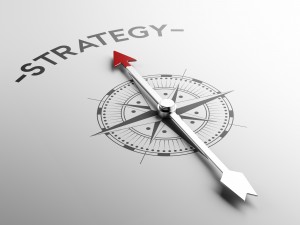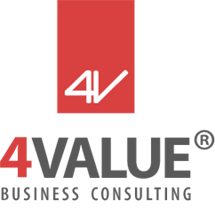A LEADER is recognized by the mark they leave along their journey. Their success results from effective decisions that lead to the development of people and the stable growth of the company.
“The path goes through many hills, and each peak is a terrace to achieve the next success.”
The program is designed for Leaders and Managers who aspire to be true LEADERS. It was created for those who want to manage more effectively and develop their leadership skills. We work both individually and with groups. This original program takes participants through various elements with a strong focus on leadership development. Additionally, participants, with the support of mentors and consultants, analyze case studies and their own decisions, consider their long-term effects, and explore alternative solutions and scenarios, accounting for random factors.
Leadership, therefore, follows a path of knowledge, experience, continuous development, perseverance in self-improvement, and helping others on the journey from Success to Mastery. Our development programs draw from global research in this field and the business practice of 4VALUE Business Consulting.
Leadership Academy – from vision to mastery
STAGE I – LEADER AS MANAGER – effective tools and management techniques for achieving set goals.
STAGE II – CONSCIOUS LEADER DISC D3 – development begins with oneself. DISC D3 is the most sensitive diagnostic tool for personality assessment, combining four analyses: DISC, TEAMS, VALUES, BAI.
STAGE III – LEADER AS COACH AND MENTOR – how to enhance team effectiveness and efficiency through individual developmental actions.
STAGE IV – LEADER AS STRATEGIC LEADER – leadership for achieving the right results.
STAGE V – LEADER AND FINANCE – leveraging analysis and indicators to build company results and value.
STAGE VI – LEADER OF AN EFFECTIVE TEAM – making teamwork an added value that elevates results to a higher level.
STAGE VII – INCLUSIVE LEADER – the inclusive role of a Leader within an organization.
STAGE VIII – MY LEADERSHIP – my journey to excellence.
STAGE IX – STRATEGY AND STRATEGIC THINKING FOR LEADERS – how to best lead a company to success.
STAGE X – INSPIRATION – a meeting with an inspiring speaker on Leadership.
Supplementary Stages – additional topics to complement the academy:
- Developing awareness – how to tame one’s EGO.
- Employee Evaluation Conversations – how to effectively assess, motivate, support, and control – basics of Development Center.
- Storytelling – as a tool for building trust, engaging, and evoking emotions in business and presentations.
- Communication and Managing X, Y, Z – how generational differences influence employee behaviors and attitudes in an organization.
- Time Management – managing the task basket for effective organization of your and your employees’ time.
- Public Speaking – how to speak attractively and convincingly in the company and publicly.
- Conflict Management in Teams
- Effectively handling stress – how to turn stress to your advantage.
The standard program may consist of five to ten two-day modules conducted at intervals over time. The academy can be run in both open and closed formats for specific groups of Leaders and Managers. In the open format, anyone wishing to gain new skills and develop leadership competencies works in small groups under the guidance of an experienced mentor. Collaboration with other Leaders at a similar level and mentoring from an expert at 4VALUE ensures the process’s effectiveness. The program showcases best practices, challenging cases with potential solutions, and works with real case studies. In the closed format, there is an essential unification of the “Leadership Code” within the management group, directly increasing efficiency.
We also offer leadership competency development programs tailored to individual needs of people and organizations – in terms of content, intensity, and program duration.
SEE THE PROGRAM:
Stage I – LEADER AS MANAGER – effective tools and management techniques for achieving set goals.
- Leader’s horizon vs. manager’s horizon – setting goals and conveying them effectively.
- Planning, organizing, selecting personnel, feedback, delegating, supervising, monitoring, and reporting.
- RAZ model in management and situational management.
- Effective communication, natural authority, and self-worth in management processes – manager’s leadership.
- Most effective management styles during development and in the face of change.
- The essence of managerial leadership.
- Self-diagnosis of managerial skills.
- Basic motivational models – effectively motivating employees.
- Difficult situations in management.
- Managing conflict in teams.
- What is communication, and how does it work?
- Time Management – managing the task basket.
- The manager’s toolbox.
- Change Management.
Stage II – CONSCIOUS LEADER DISC D3 – development begins with oneself. DISC D3 is the most sensitive diagnostic tool for personality assessment, combining four analyses: DISC, TEAMS, VALUES, BAI.
- First stage: completing the main test.
- Second stage: a workshop with a certified D3+BAI trainer.
- These analyses:
- Increase predispositions and efficiency in communication and management processes.
- Reveal who I am and what my strengths are.
- Show what motivates us and what values guide our decision-making.
- Help identify employees and coworkers to better tailor communication and foster mutual understanding of attitudes and behaviors.
- Reduce group conflicts by enhancing understanding of communication differences.
- Facilitate faster and more efficient decision-making.
Stage III – LEADER AS COACH AND MENTOR – enhancing team effectiveness and efficiency through individual developmental actions.
- What is coaching and mentoring in business and management?
- Stages of coaching. Key skills of a Coach.
- Management styles according to Hersey and Blanchard in coaching.
- Rules for collaborative work and the leader’s role as a coach.
- Building one’s authority.
- The GROW and REGROW models.
- The wheel of values and resource models.
- Employee development mapping.
- Mentoring and counseling – from advice to self-actualization.
- Dilts’ Levels of Change.
- Coaching skill training.

Stage IV – LEADER AS STRATEGIC LEADER – achieving desired results through leadership.
- The leader’s horizon – vision, strategy, goals, and values.
- Traits of the most effective leaders – what makes a leader?
- Leaders of change – roles, tasks, and operational principles.
- Transformational leader vs. transactional leader.
- Emotional intelligence in leadership.
- Leader’s image and personal branding.
- Leadership at Level 5.
- Working with one’s EGO.
- What is internal is reflected externally.
- Organizational culture (norms, values, and ways of working as a reflection of the leader’s actions).
- Key people matter – “Who first, then what.”
- The process of conscious decision-making and formulating problem theses.
- Evaluating results in the short and long term – analysis, verification, perspective shifts, and alternative solutions.
- Leading oneself.
Stage V – LEADER AND FINANCE – using analysis and indicators to build company results and value.
- Understanding and interpreting financial concepts to build leadership.
- Balance sheet, income statement, financial data analysis.
- Building KPIs for the growth of people and organizations.
- Basics of ratio analysis, cash flow, and working capital management.
- Building company value.
- Working with specific case studies and company documents.
Stage VI – LEADER OF AN EFFECTIVE TEAM – making teamwork an added value that elevates results to a higher level.
- Group processes.
- Belbin/DISC group roles.
- Effective communication in teamwork – common obstacles.
- Building the “substance of the team” for smooth work in a good atmosphere.
- Switching between management and leadership in teamwork!
- “The glue recipe” – how to collaborate effectively across departments.
- Development and problem-solving models.
- Deming Cycle.
- Ishikawa Diagram.
- 5 Whys.
- Cartesian Questions and others.
- Coaching insights.
- Challenging teamwork situations.
Stage VII – INCLUSIVE LEADER – the inclusive role of a leader in an organization.
- Inclusive Leader functions.
- Encouraging engagement.
- Supporting diversity.
- Encouraging courage and challenging the status quo.
- Listening to employees.
- Motivating employees to actively engage in the company.
- Appreciating individuality.
- Ensuring equal opportunities in actions.
- Demonstrating understanding and guidance.
- Fostering innovation and learning in an inclusive organization.
Stage VIII – MY LEADERSHIP – my journey to excellence.
- “Who am I as a Leader?”
- Self-awareness as the foundation of leadership development.
- My leadership challenges.
- Leadership differences between men and women – do they exist?
- Decision-making processes in short- and long-term perspectives.
- Personal Branding.
- My leadership development process.
- Public speaking as a tool for building one’s image.
- Storytelling as a tool for building authority.
- Managing stress in a leader’s life.
Participants of the Academy can also benefit from individual coaching or mentoring sessions during or after the program.
Stage IX – STRATEGY AND STRATEGIC THINKING FOR LEADERS – how to best lead the company to success.
- What serves as the strategic impulse for change/action in a company?
- The process of preparing for strategy development.
- Methodology: STOP – LOOK – GO! Diagnosis, potential, action as elements of preparation and implementation.
- Tools for strategic work: SWOT, PESTEL, value curves, competition analysis, ERWS, Porter’s 5 Forces, prevailing technologies, and more.
- Mission, vision, strategy, goals, values, plan, action – the role of each element in building a strategy and how to utilize them.
- Defining the most critical areas of activity.
- Go where the ball is going to be! What is “strategic thinking,” and what is strategy?
- Elements of strategic thinking: predicting, challenging, interpreting, deciding, mobilizing, learning. Self-diagnosis and testing.
- Key success factors.
- Perspectives: CLIENT, PRODUCT, COMPETITION – needs, advantages, USP.
- Strategic initiatives, projects, and cascading goals.
- Creativity and openness in strategic thinking.
- Scenario thinking, prototyping, and testing.
- Rules of competition in “red oceans” and exploring the potential of “blue oceans.”
- “Strategic team mindset” and developmental areas.
- ROAD MAP for the company/team – what does it mean?
- Setting priorities.
- Operational action plan.
- Monitoring the implementation of goals and initiatives.
Stage X – INSPIRATION – a meeting with an inspiring speaker on Leadership.
The 4VALUE leadership competency development programs are inspired by, among others, the discoveries of Ram Charan (article), author of numerous books and articles, and a consultant to major international corporations. His extensive research reveals that the most effective leaders:
- Have a clear vision of their goals, are unequivocal, determined, and consistent.
- Think “outside the box” while keeping their feet firmly on the ground.
- Seek various inspirations to view matters from multiple perspectives.
- Regularly step outside their comfort zones, knowing that growth and development occur there.
- Focus on the development of people and the organization.
The 4VALUE offering is based on the latest global research, an original program, and extensive experience working with leaders from our consultants.
See also: Virtual Board Member®



